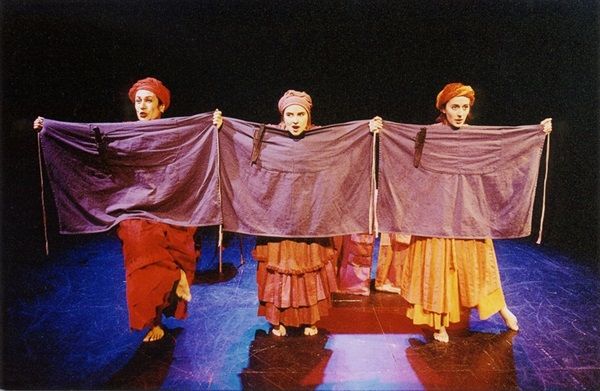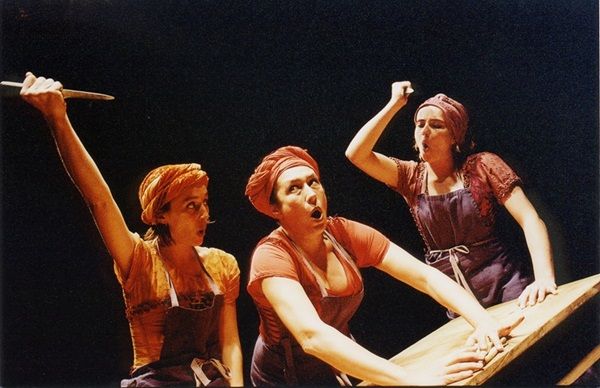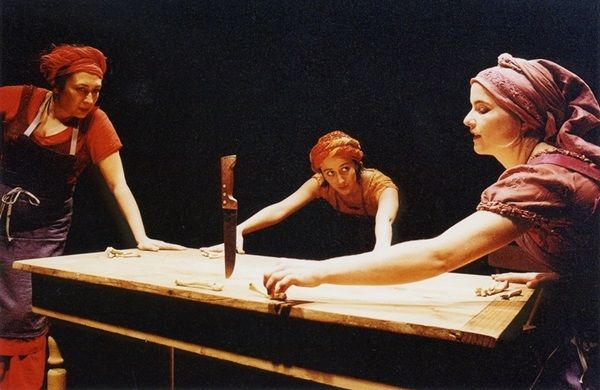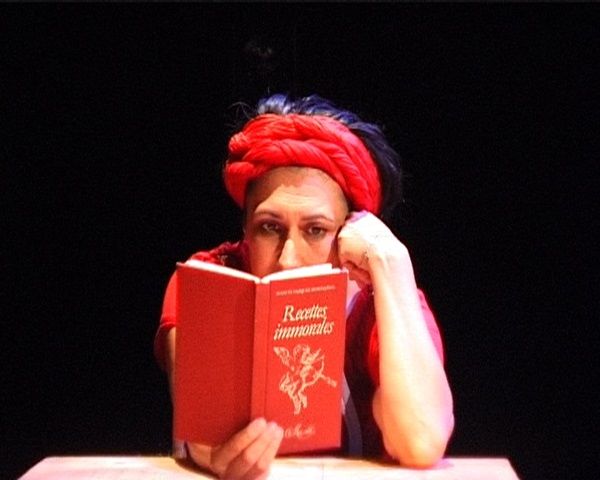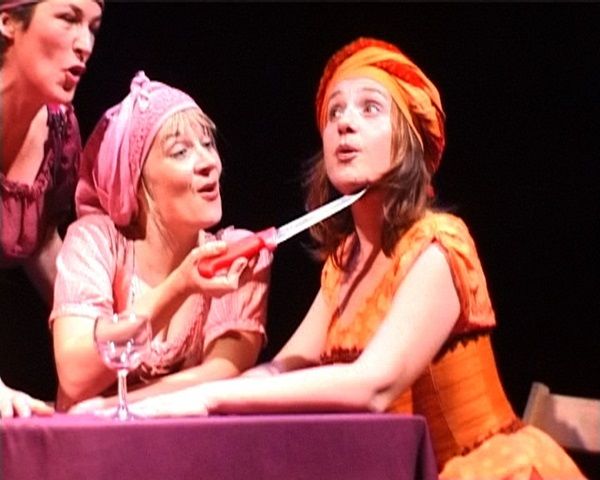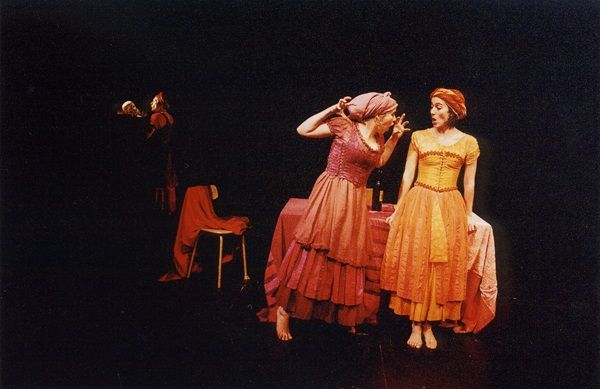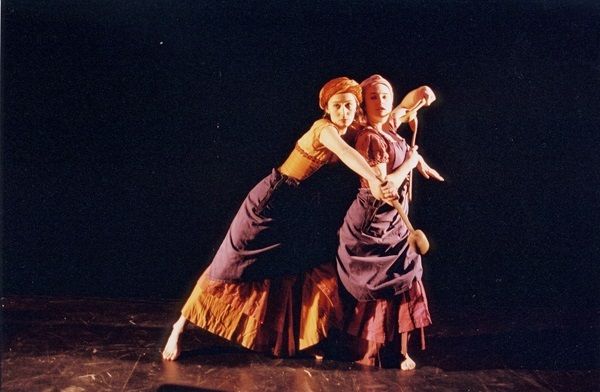The Roast of the Empress (2000-03)
according to Vasquez de Montalban’s recipe in “Immoral Recipes”
Four women prepare the mysterious food of a banquet. They accomplish the gestures of a ritual. There is a table, some wine and glasses, a kitchen knife. All rituals that celebrate a ritual of passage – be it from life to death, from youth to grown-up, from grown-up to old age, from solitude to being two or more – are sometimes accompanied by song and dance, but always by food and drink. This performance uses the art of the mouth in all its aspects: eating, drinking, singing and talking; it entertains us around the universal convivial universe of a table.
Poetry is the point of departure to confront and associate the abstraction of musical language with the semantics of text. This work wishes to make an alliance between theatre and music, singing and spoken voices, silence and gestures. It creates a visual space for music, treating movement and text as a sequence of notes, with their rhythm, accent and colouring. The performance is built around music a capella, from polyphonic singing to the scansion of spoken voice.
Le Roti de l’Impératrice (The Empress’s Roast) is a vocal concert in several pictures. It is a poem; a long poem that is spoken and sang, declaimed and vocalised, whispered and pounded; a weaving of texts and songs around a celebration.
Date(s)
2003 The empress’s roast
Casting
Original idea : Brigitte Cirla
Stage direction : Brigitte Cirla
Musical direction : Rumen Tzonev
The artists:
Brigitte Cirla, soprano
Katy Deville or Sabine Boukobza, mezzo-soprano
Isabelle Guien, contralto
Marielle Haurant or Caty Delolme, soprano
Costume designer: Nina Langhammer
Regard inspiré: Vincent Audat
Light : Raphaël Verley
Sound : Dominique Clément
Technical inventions : M. J. Ordener
Administration : Géraldine Garnier
Contact diffusion : MPPM M.Philibert
Accountant: Archipel Nelle Vague
Partners
Production: Voix Polyphoniques
Supports : SFT, Système Friche Théâtre (Marseille), Lilas en Scène (Les Lilas)
With the support of Ville de Marseille, du CG13
Repertory
1/ Dilmano – bulgarian traditionnal and arrangement Rumen Tsonev
2/ La recette 1 : les ingrédients – music Brigitte Cirla. Text Manuel V. Montalban
3/ Dé vojko – ulgarian traditionnal and arrangement Rumen Tsonev
4/ extracts from Maximes by Epicure
5/ Assassination valse – traditionnal south-west France, arrangement Benoît Bergé, text Brigitte Cirla et Brigitte Maurin
6/ Bré Petrunko – bulgarian traditionnal and arrangement Rumen Tsonev
7/ A gorge dénouée by Ghérasim Luca
8/ La recette 2 : la préparation – music Brigitte Cirla. Text Manuel V. Montalban
9/ Szelem szelem – traditionnal romanian gypsy
10/ Kaji kaji – traditionnel bulgare et arrangement Philippe Kutev
11/ extraits de Prendre corps de Ghérasim Luca
12/ Les Cafards de Kati Molnar
13/ Dymianinka – bulgarian traditionnal and arrangement Rumen Tsonev
14/ Otono porteno – music A. Piazzola, text Vincent Audat
15/ La recette 3 : la cuisson – music Brigitte Cirla. Text Manuel V. Montalban
16/ Malluros – traditionnal south-west France, arrangement Fabrice Rougier, text Vincent Audat
17/ Polegnala – bulgarian traditionnal and arrangement Philippe Kutev
18/ Laleli si – bulgarian traditionnal and arrangement Philippe Kutev
